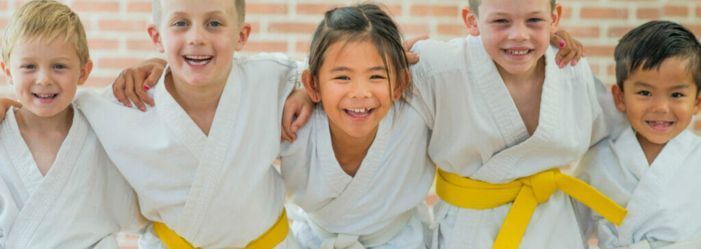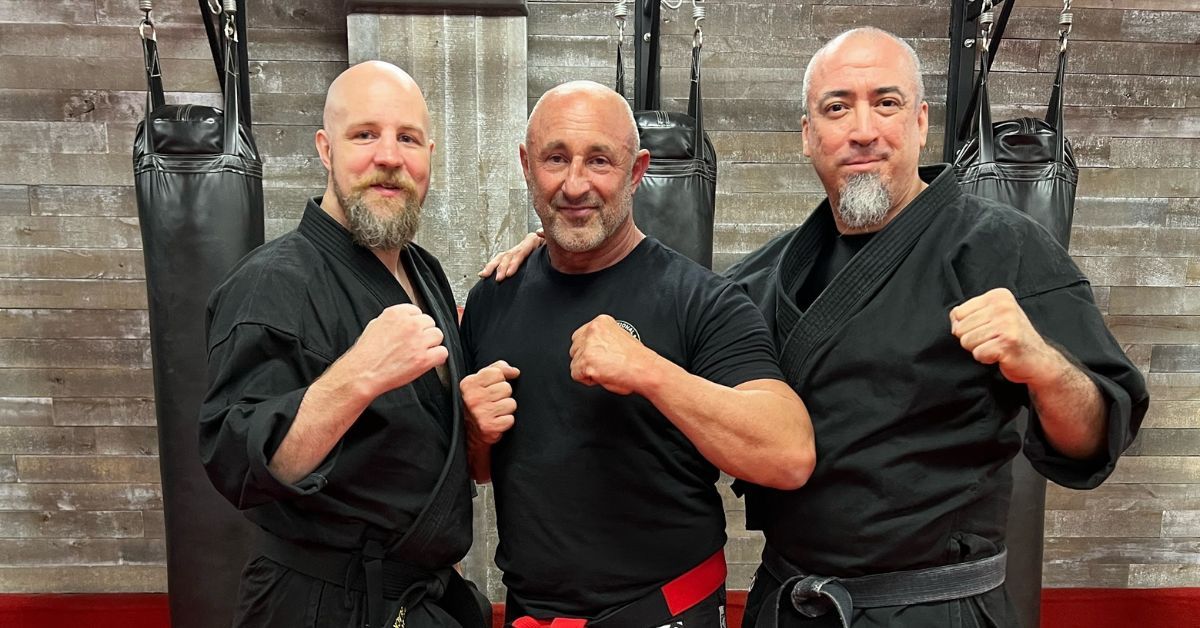The Benefits of Martial Arts for Children with Emotional Challenges

As parents, we all want the best for our children, especially when they’re facing emotional challenges. Whether your child struggles with anxiety, anger, or other emotional difficulties, finding the right outlet for them can feel like an uphill battle. You’ve likely tried different activities, therapy sessions, and maybe even mindfulness apps—but nothing quite clicks. What if the answer is more dynamic, more hands-on? What if martial arts could be the key to helping your child build emotional resilience?
Martial arts isn’t just about learning to kick and punch—it’s about learning to control both the body and mind. For kids with emotional challenges, this can be life-changing.
The Science of Emotional Regulation: Why Kids Struggle
Children, especially those with emotional difficulties, often struggle to manage their feelings. Whether it’s anxiety, anger, or impulsivity, these emotions can take a toll on their ability to thrive at school, build friendships, and maintain healthy relationships with family members.
In today’s fast-paced world, children face immense pressure. Social expectations, schoolwork, and even online interactions can all contribute to emotional dysregulation. And while traditional approaches like therapy or medication may help, they often don’t address the physical side of stress—something that martial arts does very well.
Through martial arts, children learn how to calm their minds while also engaging their bodies. This mind-body connection is crucial for kids who need to develop emotional regulation. Martial arts helps kids channel their energy productively, teaching them to manage their reactions rather than letting their emotions manage them.
Why Martial Arts is Different: Building Mental and Emotional Strength
Unlike other sports or after-school activities, martial arts provides a structured environment where children are encouraged to practice discipline, patience, and persistence. These qualities aren’t just important on the mat—they help children develop emotional control and mental resilience in everyday life.
Discipline is a core aspect of martial arts. Classes are highly structured, with clear rules and expectations that children must follow. For kids with emotional challenges, this structure can be a relief—it offers a predictable routine and teaches them how to focus on the task at hand.
Moreover, martial arts emphasizes
self-control. Kids quickly learn that success in martial arts isn’t just about physical strength or speed, but about mastering their emotions. Whether they’re feeling frustrated after missing a technique or anxious about sparring, martial arts gives them the tools to manage those emotions effectively.
One of the most valuable aspects of martial arts is the
immediate feedback loop. Every movement and technique provides instant results—whether successful or not—allowing kids to see the direct impact of their actions. This immediate feedback can be especially empowering for children who often feel like they lack control over their emotions.
In one class I taught, a young boy with anger issues was struggling with a technique. Instead of storming off or having a meltdown as he normally would, he took a deep breath and tried again. Over time, he realized that controlling his emotions helped him focus and improve. That moment became a turning point in his training, and more importantly, in how he dealt with frustration outside the dojo.
Physical Activity and Mental Health: How Movement Heals the Mind
Physical activity is an important part of managing emotions, and martial arts offers a unique combination of both physical exertion and mental focus. For children with emotional challenges, this can make a world of difference.
When kids are physically active, their bodies release
endorphins, which are natural mood boosters. Martial arts, with its combination of high-energy movements and calming breathing exercises, is particularly effective at reducing stress and anxiety.
Unlike sports that focus on team performance, martial arts offers a
personalized experience. Every class is a chance for your child to work on their own skills at their own pace. They’re not competing against others—they’re focusing on improving themselves. This reduces the pressure many kids feel in team sports, where the fear of letting others down can amplify their emotional struggles.
Martial arts also creates a strong
mind-body connection. Through the repetition of techniques, breathing exercises, and movements, children learn to connect their physical actions with their mental state. This teaches them to stay present and focused, a skill that is invaluable for managing anxiety and impulsivity.
Empowerment and Confidence: The Emotional Benefits of Mastery
For children facing emotional challenges, every small victory can feel monumental. Martial arts provides plenty of opportunities for those wins, whether it’s mastering a new technique, earning a new belt, or simply making it through a tough class.
Each of these small achievements helps build a child’s
self-confidence. As they progress in martial arts, they begin to realize their potential and what they’re capable of achieving. For a child who may feel powerless in other areas of life, this sense of accomplishment is incredibly empowering.
Martial arts also teaches children
resilience through failure. In every class, they’re faced with challenges. Sometimes they’ll fail a technique, and sometimes they’ll get knocked down—literally or figuratively. But instead of seeing failure as an end, martial arts teaches them to view it as part of the process.
This resilience extends beyond the dojo. Over time, children learn to apply this mindset to other areas of their lives. They become more patient, more persistent, and more confident in their ability to overcome obstacles—whether it’s dealing with difficult emotions, school stress, or social challenges.
Building a Supportive Brotherhood: The Mental Health Benefits of Community
One of the most overlooked benefits of martial arts is the
sense of community it fosters. When your child joins a martial arts school, they’re not just learning new skills—they’re becoming part of a supportive, encouraging community.
For children with emotional challenges, this sense of belonging can be incredibly powerful. Martial arts schools create a safe, structured environment where kids can be themselves without fear of judgment or rejection. Whether they’re sparring with a partner or practicing techniques alongside classmates, they’re building connections with others who are on the same journey.
This camaraderie helps kids develop
empathy and emotional intelligence. In martial arts, respect for your training partners is paramount. Children learn to read others’ emotions and respond appropriately, fostering a deeper understanding of themselves and those around them.
And of course, the
mentorship provided by martial arts instructors is invaluable. A good instructor isn’t just teaching kicks and punches—they’re teaching life lessons about perseverance, patience, and respect. For many kids, this mentorship becomes a guiding force in their lives, helping them navigate their emotional challenges with greater clarity and confidence.
Stress Relief That Lasts: How Martial Arts Builds Mental Resilience
One of the most lasting benefits of martial arts for children with emotional challenges is the development of
mental resilience. Martial arts isn’t just about what happens in the dojo—it’s about how those lessons carry over into daily life.
Through martial arts, kids learn to stay calm under pressure. Whether they’re dealing with the stress of a sparring match or the frustration of learning a new technique, they’re constantly developing their ability to manage stress. This translates directly into their ability to handle emotional challenges outside of class.
When faced with a stressful situation at school or home, a child who practices martial arts is better equipped to stay calm, focused, and in control. They’ve practiced it hundreds of times in class, and now they’re ready to apply it in real life.
How to Get Started: Choosing the Right Martial Art for Your Child
If you’re ready to explore martial arts as a way to help your child manage their emotions, the first step is finding the right fit. Different martial arts styles offer different benefits, so it’s important to consider your child’s unique needs.
- Freestyle Martial Arts: This modern approach to traditional martial arts emphasize discipline, respect, and structured techniques, making them ideal for children who need focus and routine.
- Grappling Arts: Grappling-based martial arts teaches patience and problem-solving under pressure, perfect for kids who need to channel aggression or anxiety in a controlled way (which we have built into our curriculum).
- Muay Thai and Kickboxing: High-energy and dynamic, Muay Thai offers a great way for kids to burn off excess energy while developing self-discipline and control (this is also an area of focus for us).
When choosing a martial arts school, look for one that has experience working with children, especially those with emotional challenges. A good instructor will take the time to understand your child’s needs and help them progress at their own pace.
A Path to Emotional Strength
At its core, martial arts is about more than just physical skills—it’s about developing mental and emotional strength. For children with emotional challenges, this can be transformative. Martial arts provides an outlet for stress, a path to self-control, and a supportive community where kids can thrive.
So if you’re looking for a way to help your child navigate their emotions with more resilience, confidence, and calm, martial arts might be the answer. Come join us at
Bushi Ban DFW and watch your child grow stronger, both inside and out, one class at a time.
We can't wait to meet you,
Sensei Kailer

Quick Links
Contact Us
Find Us
© Made With Love by Winterbourne

